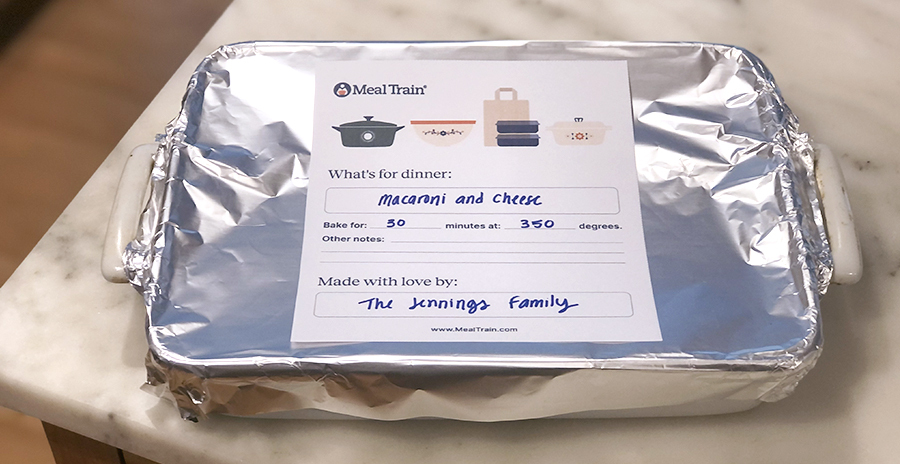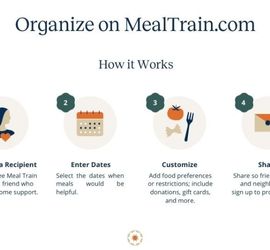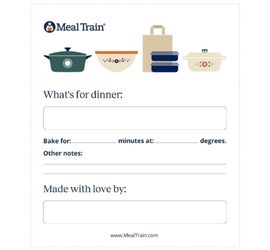If you’ve ever been in a crisis, you’ve likely heard these words, “What can I do to help?”
They’re well-intentioned. People around you are reaching out to make you feel loved and supported in your time of need, but there’s a whole host of other things you’re feeling right now. You’re feeling overwhelmed, exhausted, and humbled. You probably can’t imagine organizing anything — even if it’ll simplify your life overall.
So, the next time you see someone around you going through a difficult moment, try not to utter those 6 common words, “What can I do to help?”
Instead, spring into action! Here are some of our top tips about how to just do without putting the burden for help on those who need it most.
Organize meals
Not much is more comforting than having a home-cooked meal after you’ve had surgery, been sick, had a baby, or had a death in the family. When food is taken care of, it’s a lot easier for people to focus on the details that are most important to them. Here are some tips for organizing food for someone in need (and enlisting your community to help!)
- Request a list of food allergies and preferences
- Provide a complete meal that only requires reheating
- Keep food safety in mind (i.e., use ice packs or put hot food into insulated bags)
- Always include recipes and reheating instructions
- Have a designated drop-off time so they know when to expect the meal(s)
Using MealTrain.com takes care of all these details like scheduling, reminders, updates, and so much more.

Request a few grocery items
Next time you’re going to the grocery store, text the person in need and ask them for a couple of items off their grocery list. They may be too humble to allow someone to pick up their entire grocery bill, but just milk, eggs, or diapers? Having these items may help tide them over and push out their next grocery trip, so they’re not stressed about trekking out with everything else they have going on.
Also, have a few items off the top of your head to suggest if they sound resistant, and remind them that you’re on your way to the store for yourself already. It’s really no trouble at all.
Go for a walk
During difficult times, it can be hard to know how to react. Some people tend to hunker down at home, and this results in less sunlight, fresh air, and vitamin D. Offer to go for a walk with them, their baby, their dog, or anyone else who wants to come along. It can be a great way to get out, get some exercise, change their scenery, and help them feel better in a small way.
Make time to visit, but set a limit
Visiting someone during a crisis, trauma, or grief can be difficult. Some people love company while others cocoon themselves to preserve their mental energy. If you’re asked to visit, make sure you have a time limit so everyone knows exactly how long you’re planning to stay. It’s often draining to feel like you need to clean your home or entertain someone when you’re not feeling well so propose a quick 10-minute visit on the porch.
A great way to make a quick visit is by letting them know you’ll stop by before a set appointment or school pick-up time. This way, your time with them won’t extend beyond a certain point. You can always make plans to come back!
Do a load of laundry
Laundry is a never-ending chore. For someone who is ill, grieving, or recovering, laundry is just like food…you know they’ll need help. Be the friend or family member who offers to come over and do a couple of loads on their behalf. Stay through the entire process (including folding and putting away if they’re comfortable with that!) and chat or watch movies with them.
Final thoughts
Just because someone brushes off your support initially doesn’t mean they wouldn’t benefit from it or value it. Use MealTrain.com to create a meal calendar for new babies, military deployment, extended illnesses, condolences, and other common events. Read more helpful articles here or share this with friends on Facebook.





















































